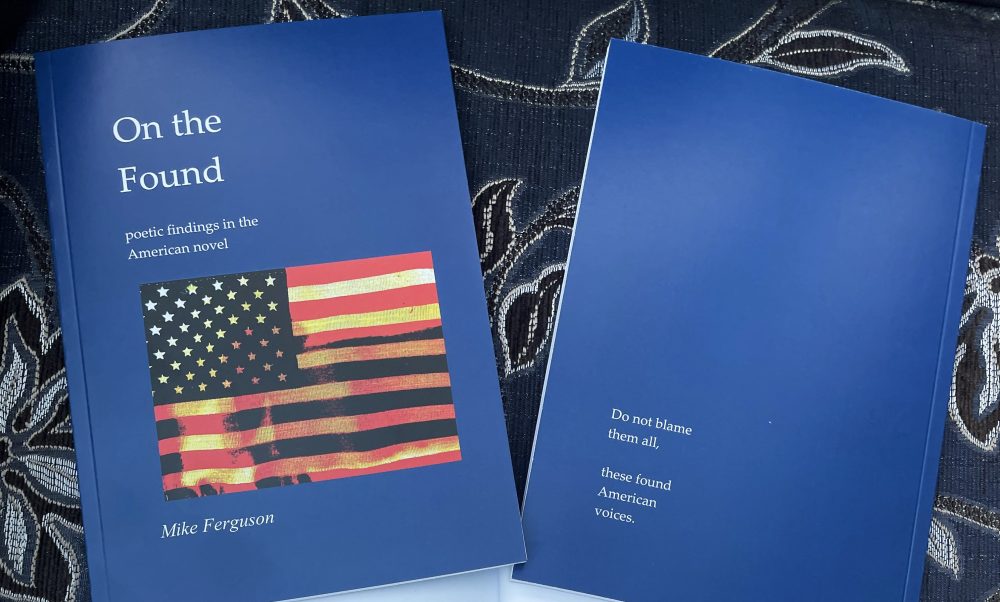
Blurb Bounty
I was honoured to have two thoughtful and generous blurbs provided for my recent publication Drawing on Previous Learning. Both Martin Phillips and Peter Thomas are friends as well as teaching/education/writing colleagues. I have always had the utmost respect for their contributions to English teaching across a wide range of national and influential professional responsibilities, and both have – as a partnership and in their individual ways – contributed greatly to the thinking about, training, resourcing, and examining in the subject of English. Naturally, their views matter much to me, and I will be forever grateful for them.
For the book’s blurb, Peter’s fuller response to my text was edited by the publisher, essentially as a back cover has limited space! His trenchant political statements deserve, I think, an airing (my agreeing with them completely) and I am also delighted to have had his further insights into individual poems.
If this sounds like a further big sell, it is. But my appreciation for their support is genuinely larger than this. Here are Peter’s comments:
I have known Mike Ferguson as a friend and colleague for years, and have admired the clarity and integrity of his thinking about education in general and English education in particular. His occasional blog rants and regular Xmas Stocking Filler pamphlets have been a welcome blast against fatuous and bigoted Tory views of education, small bright beacons in an increasingly bleak landscape of politicised interference in the potential magic of English in the classroom. Those beacons draw their energy from a lifetime’s immersion in the craft of English teaching, and in experience as an examiner in various versions of GCSE over the years.
Now Mike has put together a collection that celebrates and scathes, with honours and horrors put on the page in poems, prose poems and monologues. Many of these skewer the way in which the cultural capitalist model of curriculum and assessment has increasingly rewarded the labelling of devices as a substitute for real engagement with thought and feeling in literature. He voices many examiners’ frustration with foreshadowing, caesura, enjambement and the fronted adverbial offered as the assessment tokens of learning in the reduced repertoire of reading for the test.
In A Bold, Cold Autumn, Mike writes:
English enjambement/rules the forward thrust of negativity, and seasonal/expectation is painted with the red grimace of falling/leaves, even when that metaphor has been sucked dry/by a taught language so keen to explain away surprise..
In National Curriculum at Sea Life, he observes the way his daughter’s encounter with a SATs reading test yields surprise and delights in her comments that ‘the o flying away from didn’t is an apostrophe”, and her misreading of “the astonishing angels” from which objects at Sea Life can be seen. Mike’s wryly forlorn comment on such assessable incorrectness is memorable:
Most noticeable angles are actually hard/As she’ll learn and tell/herself when discovering what might have been.
Throughout this volume, there is a call for the humane and creative tradition in English teaching to oppose the reductive barbarism of the Govian inheritance, vociferously promoted by the favoured orthodoxies of Direct Instruction and so-called “knowledge-rich” Tory favourites who adopt the Hirschian model of culture as a means to social mobility to justify a model of education that values what you know over why it’s worth knowing, receiving wisdom over questioning it and, consequently, privileging compliance over agency. As Mike says in Crushed Stetson:
In a room where someone is preaching/better lessons are taught and learnt when chanced upon.
Oddly enough, or perhaps not, it’s in his piece on Art Teachers that Mike articulates those energies that should fuel good English teaching, because they:
Abhor black and white in education/use a palette for being mixed-up/know Dali should design the curriculum/brushstroke their lives.
As may be expected from a writer immersed in poetry, there is wit and warmth in his homage to Coleridge in Aeolian Harping On, to Jonson in On My First Job and in his self-study based on Larkin’s Mr Bleaney. My favourite of these is his reflection on Hughes and creativity in Who Killed the Thought-Fox, in which he considers the “freedom to roam…curtailed by trips and traps set by new hunters who know no better”. He ends:
The murderers can come/running with their measuring tapes/sizing up this final kill.
Peter Thomas ~ former Chair of the National Association for the Teaching of English
